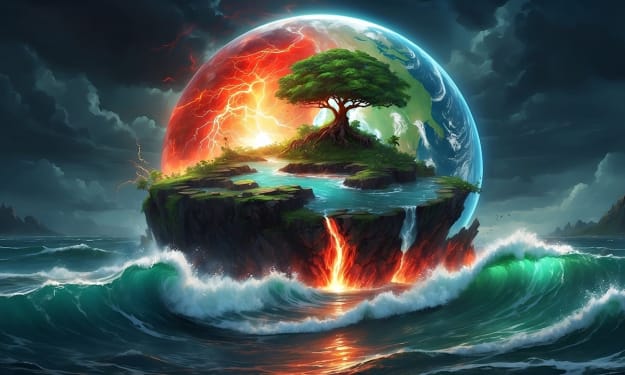
Nepal, officially known as the Federal Democratic Republic of Nepal, is a landlocked country located in South Asia. It is nestled between two giants, India to the south, east, and west, and China (Tibet Autonomous Region) to the north. Despite its small size, Nepal is rich in cultural diversity, natural beauty, and a fascinating history that stretches back thousands of years.
Nepal is renowned for being home to the world's highest peak, Mount Everest, which attracts climbers and adventure enthusiasts from around the globe. The country is also blessed with a diverse geography that ranges from the rugged Himalayas in the north to the fertile plains of the Terai in the south. In between, there are lush hills, deep valleys, and picturesque lakes, including the famous Pokhara Valley and the Rara Lake.
The history of Nepal is deeply intertwined with religion and monarchy. The country has a legacy of ancient kingdoms, with various dynasties ruling over different regions. The Shah dynasty, which began in the 18th century, played a significant role in shaping modern Nepal. However, Nepal transitioned from an absolute monarchy to a federal democratic republic in 2008, marking a turning point in its political landscape.
Nepal is known for its cultural heritage, with a blend of Hinduism and Buddhism being the predominant religions. The country is home to numerous sacred sites, temples, and monasteries that are revered by locals and attract pilgrims and tourists alike. The Pashupatinath Temple, Swayambhunath Stupa (also known as the Monkey Temple), and the birthplace of Lord Buddha in Lumbini are among the important spiritual sites in Nepal.
The people of Nepal are diverse, with various ethnic groups and indigenous communities residing within its borders. The major ethnic groups include the Brahmins and Chhetris, who are traditionally associated with Hinduism, as well as the Newars, Gurungs, Tamangs, and Sherpas, among others. Each community has its unique language, culture, and traditions, contributing to the rich tapestry of Nepalese society.
Nepal is also renowned for its trekking and mountaineering opportunities. The country offers a wide range of trekking routes, from the famous Annapurna Circuit and Everest Base Camp trek to lesser-known trails in the remote regions. These treks not only showcase the breathtaking landscapes of the Himalayas but also provide insights into the local way of life and cultural traditions of the mountain communities.
Agriculture forms the backbone of Nepal's economy, employing a significant portion of the population. The fertile land in the Terai region supports the cultivation of rice, wheat, corn, and other crops, while the hill regions are known for tea, coffee, spices, and fruits. In recent years, tourism has emerged as a vital sector, contributing to the country's economic growth. Visitors come to Nepal to explore its natural wonders, experience its vibrant culture, and engage in adventure activities.
Nepal has made significant progress in various development indicators, including education and healthcare. Efforts have been made to improve access to education and reduce the gender gap in literacy rates. The country has made strides in healthcare, with increased access to basic healthcare services and a focus on improving maternal and child health. However, challenges remain, particularly in remote and marginalized communities.
Environmental conservation is a critical issue in Nepal, given its unique biodiversity and fragile ecosystems. The country is home to several national parks and conservation areas, including Sagarmatha National Park and Chitwan National Park, which are UNESCO World Heritage Sites. Nepal has been actively engaged in initiatives to protect its natural resources, promote sustainable tourism, and address the effects of climate change.
Nepal is also an active participant in regional and international affairs. It is a member of the United Nations and the South Asian Association for Regional Cooperation (SAARC), among other organizations. The country has maintained diplomatic relations with various countries and has played a constructive role in promoting peace, stability, and cooperation in the region.
In conclusion, Nepal is a captivating country with a rich cultural heritage, breathtaking landscapes, and a resilient spirit. Its warm and welcoming people, coupled with its natural and cultural treasures, make it an enchanting destination for travelers and adventurers. Nepal continues to make strides in its development journey, while preserving its unique identity and deep-rooted traditions.





Comments
There are no comments for this story
Be the first to respond and start the conversation.